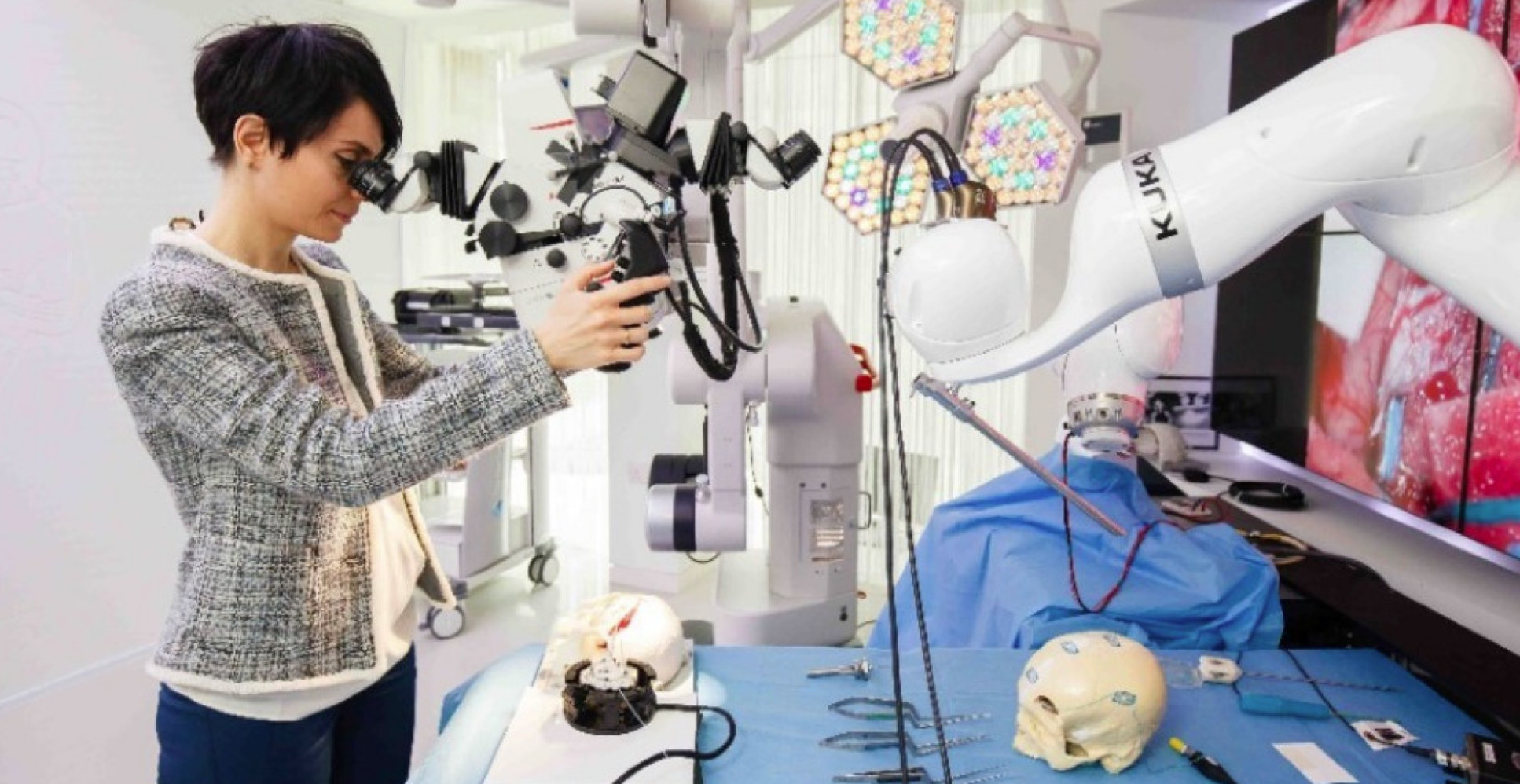Cognitive Vision in Robotic Surgery

Contact
Dr Stamatia (Matina) Giannarou
stamatia.giannarou@imperial.ac.uk
What we do
Surgery is undergoing rapid changes driven by recent technological advances and our on-going pursuit towards early intervention and personalised treatment. We are developing computer vision and Artificial Intelligence techniques for intraoperative navigation and real-time tissue characterisation during minimally invasive and robot-assisted operations to improve both the efficacy and safety of surgical procedures. Our work will revolutionize the treatment of cancers and pave the way for autonomous robot-assisted interventions.
Why it is important
With recent advances in medical imaging, sensing and robotics, surgical oncology is entering a new era of early intervention, personalised treatment and accelerated patient recovery. The main goal of surgical oncology is to achieve complete resection of cancerous tissue with minimal iatrogenic injury to surrounding tissue. In practice, this often presents a formidable challenge to surgeons, leading to imprecise surgical interventions with high rates of re-excision due to oncologically positive resection margins and deterioration in life quality in case of iatrogenic injury. The corollary is that technologies that allow for improved identification of cancer tissue, and more precise and delicate resection, may improve patient outcomes.
How it can benefit patients
The methods we develop aim at permitting the patient to receive accurate and safe surgical treatment at the right time. It will also reduce the mental workload for surgeons, assisting them to overcome the limitations of cancer surgery and reduce surgical errors. Since the extent of tumour excision is positively corelated with outcomes, the hybrid diagnostic and therapeutic tools which we develop will decrease recurrence rates and lead to improved survival outcomes. Additionally, they will have a positive impact on the morbidity associated with repeat procedures. More complete tumour removal will improve patient quality of life and life expectancy, with obvious impact on society and the economy.
Summary of current research
Our research aims at integrating multimodal intraoperative imaging and navigation technologies into a cognitive robotic platform to improve the efficacy and safety of surgery. This involves the development of computer vision techniques for soft tissue tracking, deformable 3D reconstruction, tissue deformation recovery and tracking of surgical tools. This modelling of the surgical scene is used to guide robotic tools for autonomous robot-assisted tissue scanning and manipulation, based on the development of sophisticated visual servoing techniques. The tissue characteristics captured during tissue scanning are analysed to support diagnosis by designing machine learning models for data classification and semantic segmentation. To assist surgical navigation and provide intraoperative guidance, we develop Mixed Reality visualisation frameworks which integrate multimodal information.
Tabs - Funders / PhD Students
Funders
PhD Students
- Sam Tukra
- Joao Vieira Cartucho
- Alistair Weld
- Joseph Davids
Lead Researchers
Dr Stamatia (Matina) Giannarou

Dr Stamatia (Matina) Giannarou
Lecturer in Surgical Cancer Technology and Imaging


